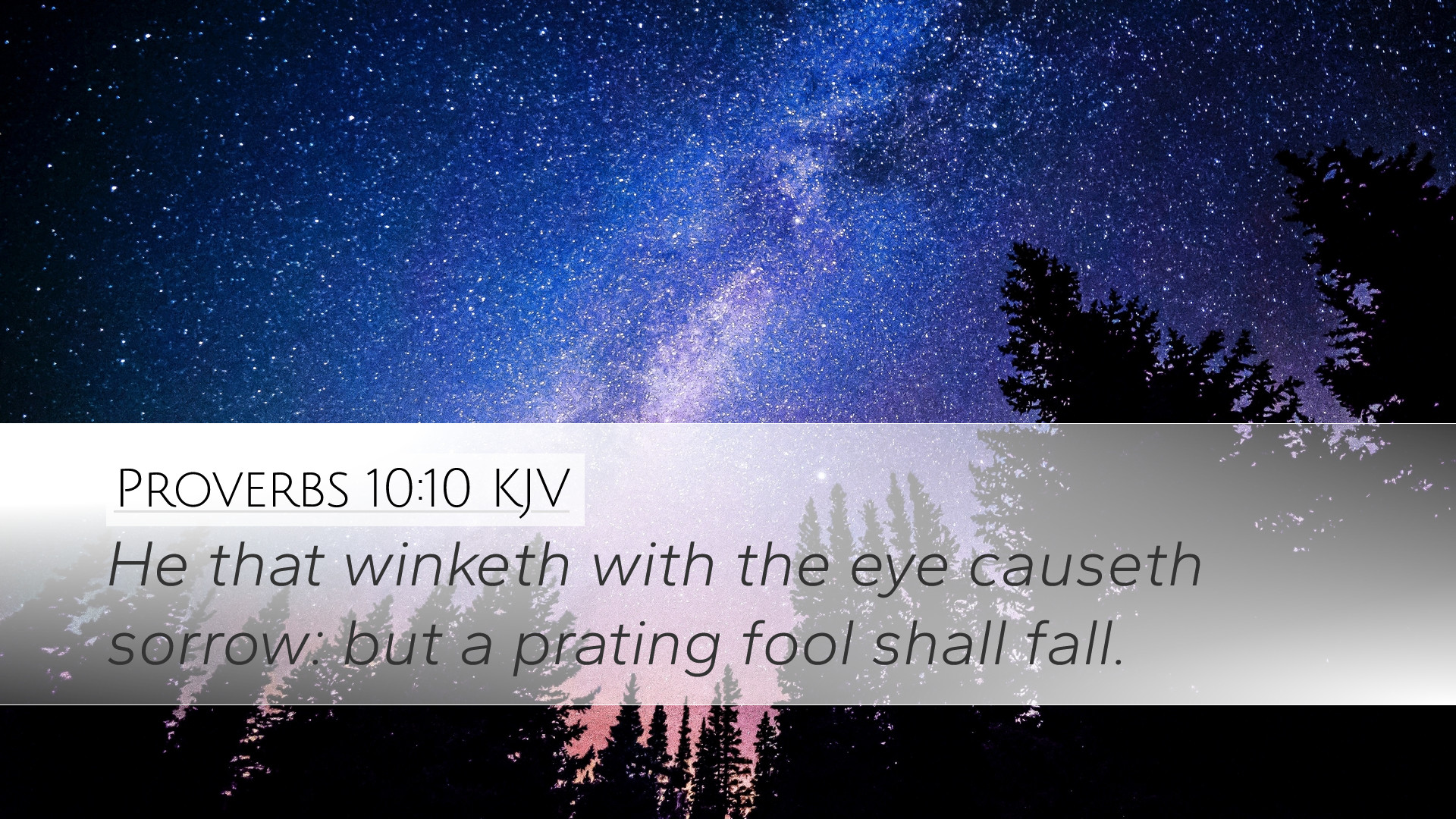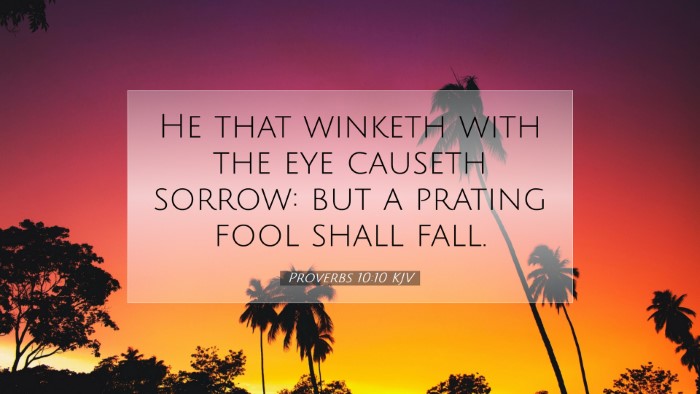Commentary on Proverbs 10:10
Verse: "He who winks the eye causes trouble, but a bold reproof promotes peace."
Overview
Proverbs 10:10 contrasts two types of behavior: the subtle, cunning acts suggested by the phrase "winks the eye" and the straightforward, courageous act of giving reproof. This verse encapsulates a significant biblical principle regarding communication and its consequences for personal and communal peace.
Insights from Commentary
Matthew Henry's Commentary
Matthew Henry elaborates on the usage of the "wink" as indicative of deceit and misconduct. A person who "winks" often does so to imply complicity in wrongdoing or to signal to others that they should overlook certain behaviors. Such actions lead to turmoil, as they promote hidden agendas rather than open truths.
He contrasts this with the notion of bold reproof. Henry emphasizes that speaking the truth, even when it is uncomfortable, fosters peace and clarity among individuals. He denotes that reproof should be done wisely and charitably, as it can lead to repentance and restoration in interpersonal relationships.
Albert Barnes' Commentary
Albert Barnes stresses the significance of integrity in behavior. He interprets "he who winks the eye" as one who engages in hypocritical actions or behaves covertly. This secrecy and lack of integrity tend to create friction and strife within communities and relationships.
Barnes further reflects on the phrase “bold reproof,” elucidating that while it may not always be welcomed, it is essential for the promotion of peace. He argues that honest admonition is often necessary and that true friends are those who will risk the relationship to bring truth and righteousness to light.
Adam Clarke's Commentary
Adam Clarke approaches this verse from a pastoral perspective. He notes that the act of winking can symbolize a lack of commitment to righteousness and an endorsement of wrongdoing. This behavior creates an atmosphere of mistrust and conflict, potentially undermining community cohesion.
In contrast, Clarke emphasizes the importance of correction. He suggests that engaging in corrective dialogue can lead to spiritual healing and reconciliation. He highlights that peace is often the fruit of honest interactions, even if initially uncomfortable.
Thematic Considerations
-
The Dichotomy of Deceit and Honesty: The verse encapsulates a foundational theme in Proverbs: the contrast between wisdom and folly. The act of winking denotes subtle deception that can disrupt harmony.
-
The Importance of Reproof: Instead of shunning difficult conversations, the scripture calls for boldness in correction, which signifies love and commitment to the wellbeing of others.
-
Peace as a Desired Outcome: Both commentaries point towards peace as a significant consequence of honest dialogue and the courageous stance of providing reproof.
Application for Pastors and Theologians
For pastors, this verse serves as a reminder of the delicate balance required in leadership roles—acting with integrity while also addressing issues that threaten communal peace. The call for bold reproof stands as an imperative in pastoral care and church discipline, highlighting the tenet that love often necessitates difficult conversations.
Theologians may explore the implications of this verse in broader theological discussions surrounding sin, redemption, and community. Understanding that active, honest engagement promotes peace can transform approaches to theology based on relational integrity.
Conclusion
Proverbs 10:10 offers profound wisdom applicable across various contexts, urging an examination of both personal conduct and community dynamics. The insights drawn from Henry, Barnes, and Clarke encapsulate the dual realities of human interaction — the risk of deceit and the necessity of honest reproof. Thus, this verse remains a timeless reminder for believers to pursue truth and peace in all interactions.


